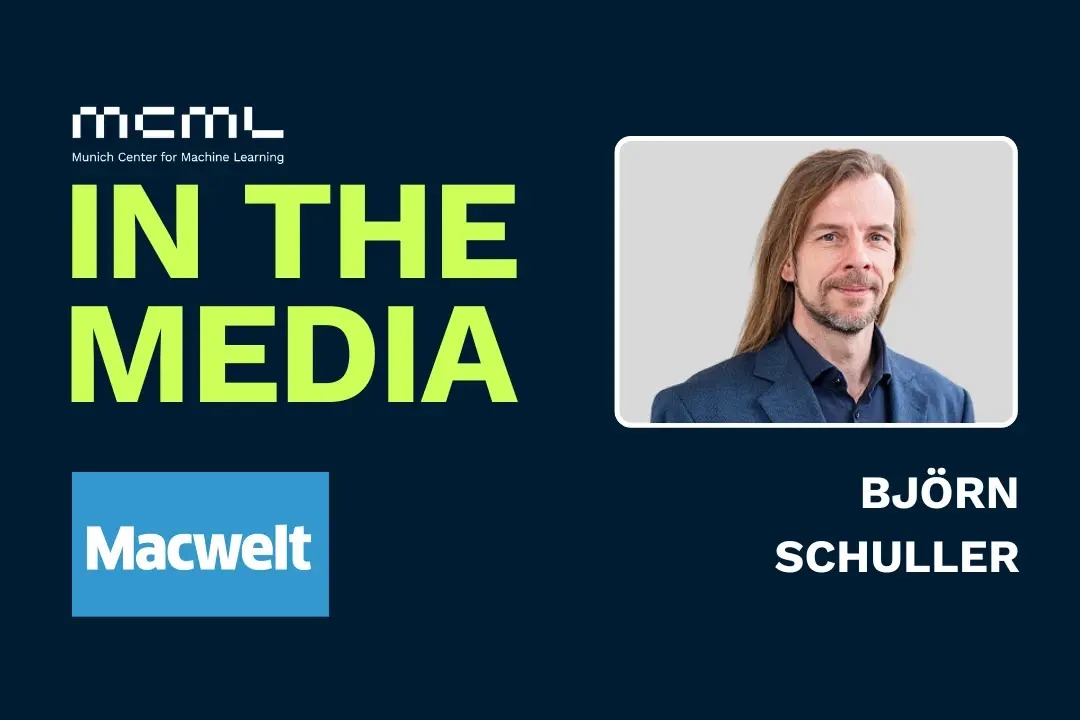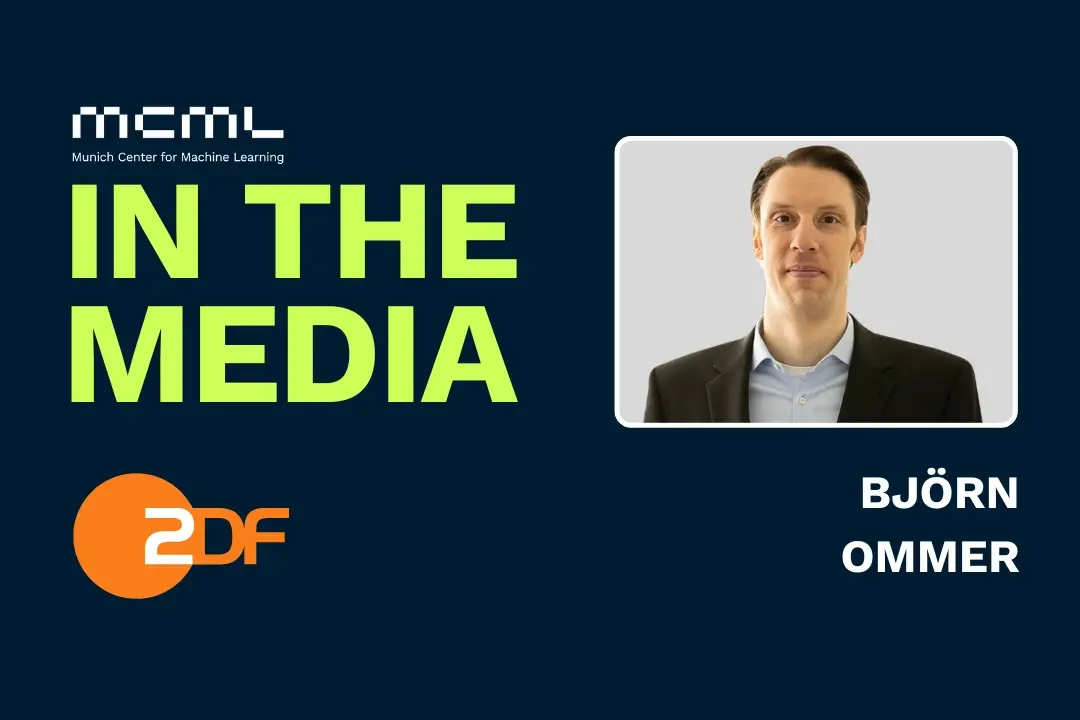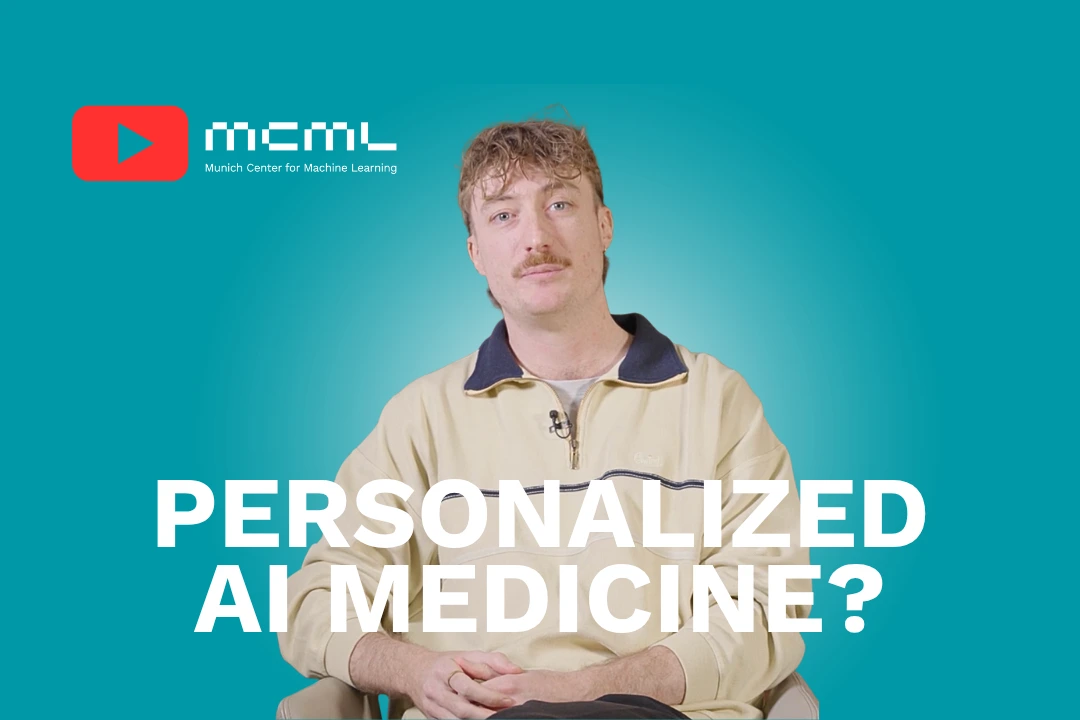03.02.2023

MCML Researchers With Four Papers at AAAI 2023
37th Conference on Artificial Intelligence (AAAI 2023). Washington, DC, USA, 07.02.2023–14.02.2023
We are happy to announce that MCML researchers are represented with four papers at AAAI 2023. Congrats to our researchers!
Main Track (4 papers)
AC-Band: A Combinatorial Bandit-Based Approach to Algorithm Configuration.
AAAI 2023 - 37th Conference on Artificial Intelligence. Washington, DC, USA, Feb 07-14, 2023. DOI
Abstract
We study the algorithm configuration (AC) problem, in which one seeks to find an optimal parameter configuration of a given target algorithm in an automated way. Although this field of research has experienced much progress recently regarding approaches satisfying strong theoretical guarantees, there is still a gap between the practical performance of these approaches and the heuristic state-of-the-art approaches. Recently, there has been significant progress in designing AC approaches that satisfy strong theoretical guarantees. However, a significant gap still remains between the practical performance of these approaches and state-of-the-art heuristic methods. To this end, we introduce AC-Band, a general approach for the AC problem based on multi-armed bandits that provides theoretical guarantees while exhibiting strong practical performance. We show that AC-Band requires significantly less computation time than other AC approaches providing theoretical guarantees while still yielding high-quality configurations.
MCML Authors

Viktor Bengs
Dr.
Estimating Average Causal Effects from Patient Trajectories.
AAAI 2023 - 37th Conference on Artificial Intelligence. Washington, DC, USA, Feb 07-14, 2023. DOI
Abstract
In medical practice, treatments are selected based on the expected causal effects on patient outcomes. Here, the gold standard for estimating causal effects are randomized controlled trials; however, such trials are costly and sometimes even unethical. Instead, medical practice is increasingly interested in estimating causal effects among patient (sub)groups from electronic health records, that is, observational data. In this paper, we aim at estimating the average causal effect (ACE) from observational data (patient trajectories) that are collected over time. For this, we propose DeepACE: an end-to-end deep learning model. DeepACE leverages the iterative G-computation formula to adjust for the bias induced by time-varying confounders. Moreover, we develop a novel sequential targeting procedure which ensures that DeepACE has favorable theoretical properties, i. e., is doubly robust and asymptotically efficient. To the best of our knowledge, this is the first work that proposes an end-to-end deep learning model tailored for estimating time-varying ACEs. We compare DeepACE in an extensive number of experiments, confirming that it achieves state-of-the-art performance. We further provide a case study for patients suffering from low back pain to demonstrate that DeepACE generates important and meaningful findings for clinical practice. Our work enables practitioners to develop effective treatment recommendations based on population effects.
MCML Authors
InstanceFormer: An Online Video Instance Segmentation Framework.
AAAI 2023 - 37th Conference on Artificial Intelligence. Washington, DC, USA, Feb 07-14, 2023. DOI GitHub
Abstract
Recent transformer-based offline video instance segmentation (VIS) approaches achieve encouraging results and significantly outperform online approaches. However, their reliance on the whole video and the immense computational complexity caused by full Spatio-temporal attention limit them in real-life applications such as processing lengthy videos. In this paper, we propose a single-stage transformer-based efficient online VIS framework named InstanceFormer, which is especially suitable for long and challenging videos. We propose three novel components to model short-term and long-term dependency and temporal coherence. First, we propagate the representation, location, and semantic information of prior instances to model short-term changes. Second, we propose a novel memory cross-attention in the decoder, which allows the network to look into earlier instances within a certain temporal window. Finally, we employ a temporal contrastive loss to impose coherence in the representation of an instance across all frames. Memory attention and temporal coherence are particularly beneficial to long-range dependency modeling, including challenging scenarios like occlusion. The proposed InstanceFormer outperforms previous online benchmark methods by a large margin across multiple datasets. Most importantly, InstanceFormer surpasses offline approaches for challenging and long datasets such as YouTube-VIS-2021 and OVIS.
MCML Authors
Improvement-focused causal recourse (ICR).
AAAI 2023 - 37th Conference on Artificial Intelligence. Washington, DC, USA, Feb 07-14, 2023. DOI
Abstract
Algorithmic recourse recommendations, such as Karimi et al.’s (2021) causal recourse (CR), inform stakeholders of how to act to revert unfavorable decisions. However, there are actions that lead to acceptance (i.e., revert the model’s decision) but do not lead to improvement (i.e., may not revert the underlying real-world state). To recommend such actions is to recommend fooling the predictor. We introduce a novel method, Improvement-Focused Causal Recourse (ICR), which involves a conceptual shift: Firstly, we require ICR recommendations to guide toward improvement. Secondly, we do not tailor the recommendations to be accepted by a specific predictor. Instead, we leverage causal knowledge to design decision systems that predict accurately pre- and post-recourse. As a result, improvement guarantees translate into acceptance guarantees. We demonstrate that given correct causal knowledge ICR, in contrast to existing approaches, guides toward both acceptance and improvement.
MCML Authors

Gunnar König
Dr.
* Former Member
Related

26.09.2025
Björn Ommer Featured in WELT
MCML PI Björn Ommer told WELT that AI can never be entirely neutral and that human judgment remains essential.

25.09.2025
Björn Schuller Featured in Macwelt Article
MCML PI Björn Schuller discusses in Macwelt how Apple Watch monitors health, detects subtle changes, and supports early intervention.

24.09.2025
MCML PI Björn Ommer Featured on ZDF NANO Talk
MCML PIs Björn Ommer & Alena Buyx discuss AI’s essence on ZDF NANO Talk, covering tech, ethics, and societal impact.

©Eleanor Großhenning / Sons of Motion Pictures GmbH
23.09.2025
Benjamin Lange Explores Opportunities and Risks of AI Agents
Benjamin Lange highlights both opportunities and ethical risks of AI agents and calls for clear rules to ensure they benefit society.








